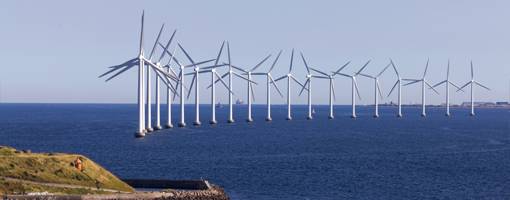The European Commission has outlined its vision for a climate neutral Europe, in line with the Paris Agreement and the UN Sustainable Development Goals.
Following an extensive public, business and NGO consultation, the EU-wide strategy for carbon neutrality is intended to lead the way to climate neutrality by investing in technological solutions, empowering citizens, and aligning action in key areas such as industrial policy, finance, or research – while ensuring social fairness for a just transition.
The vice-president responsible for the Energy Union, Maroš Šefčovič said: "We cannot safely live on a planet with the climate that is out of control. But that does not mean that to reduce emissions, we should sacrifice the livelihoods of Europeans. Over the last years, we have shown how to reduce emissions, while creating prosperity, high-quality local jobs, and improving people's quality of life. Europe will inevitably continue to transform. Our strategy now shows that by 2050, it is realistic to make Europe both climate neutral and prosperous, while leaving no European and no region behind.”
The Commission's vision for a climate-neutral future covers nearly all EU policies but will not set targets, instead, it is meant to create a vision and sense of direction.
The Commission believes that it has a mandate from its citizens based on a Eurobarometer survey (November 2018) where 93 per cent agreed that climate change is caused by human activity and 85 per cent agreeing that fighting climate change and using energy more efficiently can create economic growth and jobs in Europe.
The Commission identifies seven strategic areas: energy efficiency; deployment of renewables; clean, safe and connected mobility; competitive industry and circular economy; infrastructure and interconnections; bio-economy and natural carbon sinks; carbon capture and storage to address remaining emissions.
As a next step, the Commission is inviting the European Council, the European Parliament, the Committee of the Regions and the Economic and Social Committee to consider the EU vision in order to prepare EU Heads of State and Government for shaping the future of Europe at the European Council on 9 May 2019 in Sibiu. This EU-wide informed debate should allow the EU to adopt and submit an ambitious strategy by early 2020 to the UNFCCC as requested under the Paris Agreement.
Latest News
-
Sainsbury’s links up with Comic Relief for festive recipe campaign
-
Shepherd Neame extends air ambulance charity partnership
-
Businesses help festive match funder raise a record £57.4m
-
Firms help fund regional mayors' initiatives to tackle childhood inequality
-
Retailer raises more than £16,000 for Down’s Syndrome group
-
Snacks firm staff to donate £75,000 to charities
© 2019 Perspective Publishing Privacy & Cookies







Recent Stories